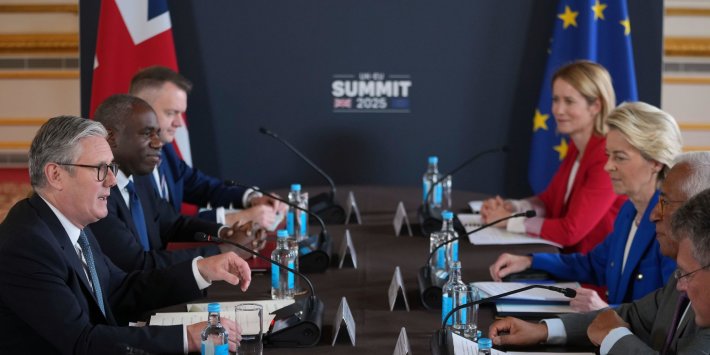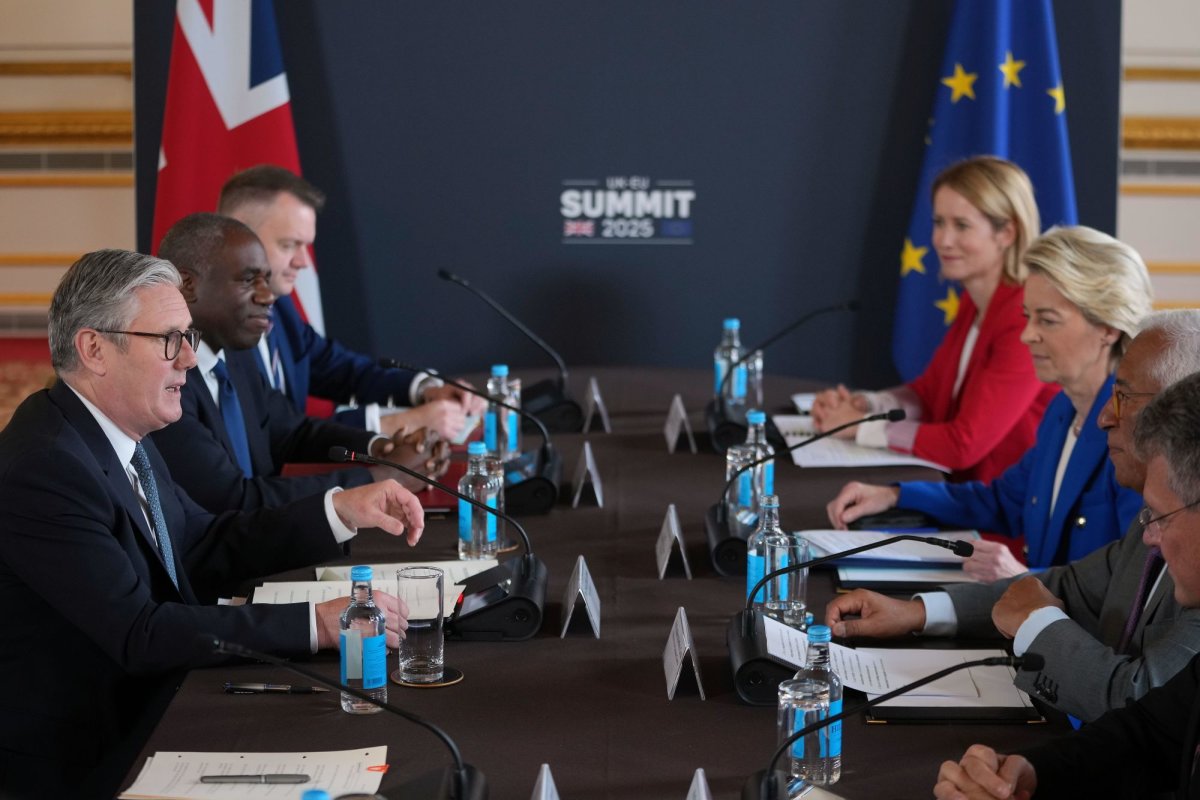
UK-EU Summit, Lancaster House, May 2025 (Credit: Contributor: PA Images)
4 min read27 min
As Europe ramps up its defence production, the UK has warned the EU not to negotiate an unworkable fee for UK participation in its €150bn defence fund.
British manufacturers stand to benefit from access to the EU’s €150bn defence pot, created to kickstart Europe’s ailing defence industry into production in the face of continued Russian aggression. The UK is now negotiating the fee it must pay to access the scheme.
But EU minister Nick Thomas-Symonds has warned the EU against pushing the UK away in negotiations.
“This is not the moment to fragment European defence. This is not the moment to fragment European defence industrial capacity,” he said, in an interview with The House. “I’ve taken that message to the EU. I think it is very well understood.”
Thomas-Symonds also suggested that the reciprocal deal with the EU that would make it easier for young people to live and work across Europe is in the latter stages of design.
The EU minister revealed that the Cabinet Office is in weekly discussion with the Home Office on what he dubs a “youth experience scheme”.
He said the internal work was focused on vetting applicants and ensuring that it benefited people from all backgrounds.
The government’s rebranding of the scheme reflects Labour’s nervousness about any return to unfettered access under EU freedom of movement.
Allowing young EU citizens enhanced rights to live and work in the UK is the bloc’s main objective in the so-called reset in relations currently being negotiated.
“The conversations logistically coming forwards I co-ordinate from central government, and they’re ongoing every week,” he said. “It’ll be obviously in making sure that for young Europeans who come here that we know who they are – all the work you expect the Home Office to be doing.”
“To achieve my ambition of having people from all different backgrounds be able to access it, I’m going to be asking, ‘Well, what are we doing? What is the comms strategy we’re using? How are we actually doing that? How are we getting that up and running?’”
Labour has made repairing relations with the EU a key ambition of its government, with a youth mobility scheme one of the deals on the table.
The UK already has similar schemes in place with 13 countries including Australia, Canada and Japan. These allow for around 80,000 people to come to the UK each year.
Thomas-Symonds refused to be drawn on where Labour would set a cap for the EU scheme, but said the public is supportive.
“The British public recognise very well that a controlled, smart youth experience scheme is very, very different to the very serious issues – I’m sure we’ll come on to – that we are facing on illegal migration. These are completely, completely different things,” he told The House.
Thomas-Symonds made his comments just after a meeting with EU trade commissioner Maroš Šefčovič in Brussels.
Recent reports suggested the EU had demanded the UK accept its requirements on a youth mobility scheme before signing a deal on food safety.
However, the minister strenuously denied the deal to ease export checks on food – a Sanitary and Phytosanitary (SPS) scheme – is conditional on Brussels’ demands for youth mobility.
“Just to be absolutely clear, there is no direct link between those two things in the negotiation. There should be no doubt about that,” he said. “This is a balanced package across a number of areas, and I don’t see or recognise that particular framing about this at all.”
“What I was talking about was the fact that, in terms of delivery, we will want to deliver the whole package,” he added. “I’ve been very ambitious in terms of delivery on the SPS agreement to 2027, and the point I was actually making was that I would expect to see a similar level of ambition in delivering all the rest of the package as well.”

